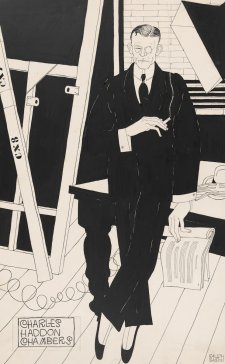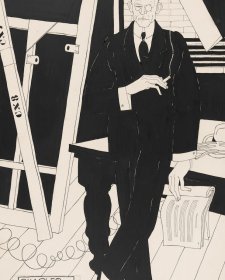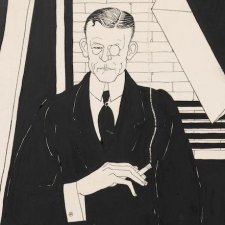Charles Haddon Chambers (1860-1921), playwright and dramatist, grew up in Sydney. Leaving school at thirteen, he worked as a clerk and then, for two years, as a boundary rider. Having travelled to Ulster and London, he returned briefly to work in Sydney before settling permanently in London at the age of twenty-two. There he began writing to support himself, contributing pieces to local magazines and writing London letters for the Bulletin. In this period he helped the Bulletin to snare Phil May. In 1888, he gained recognition when his play Captain Swift was staged with Herbert Tree in the lead role. The play about a bushranger after whom 'the long arm of coincidence' reaches was to be his only Australian-themed work apart from Thumb-nail sketches of Australian life (1891). For three decades he worked on twenty or so plays, which were staged in the West End and sometimes in New York; his outstanding successes included the melodrama The fatal card (1894), the comedy The tyranny of tears (1899), Passers-by (1911) and The saving grace (1917). Handsome, graceful and a scintillating conversationalist, he was courted by society hostesses and prominent in club life. It suited him to be married, for many years, to Mary Dewer. However, between 1896 and 1904 he was not only Nellie Melba's acting coach, but her lover. It was Chambers who took Melba to meet Hugh Ramsay in 1902, and Bertram Mackennal was amongst their circle. Otherwise, however, Chambers's connections with Australia were minimal; he meant to visit, but never did. The year before his death he married an actress with the professional name of Pepita Bobadilla. After Chambers died - at the Bath Club - she married Sidney Reilly, 'Ace of Spies'.
- About us
- Support the Gallery
- Venue hire
- Publications
- Research library
- Organisation chart
- Employment
- Contact us
- Make a booking
- Onsite programs
- Online programs
- School visit information
- Learning resources
- Little Darlings
- Professional learning







